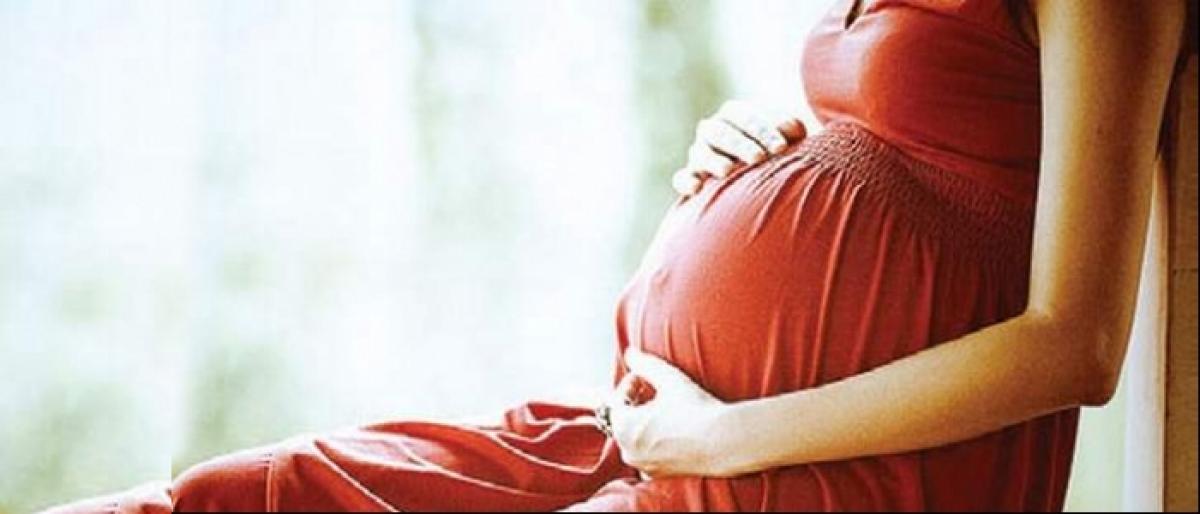Live
- Kejriwal's claims on vision for development ridiculous: Delhi BJP
- One nation, one election need of the hour: Mukhtar Abbas Naqvi
- Educational Trips in South Kanara Put on Hold Following Murudeshwar Drowning Incident
- Karnataka Temple Embraces Mechanical Elephant for Cruelty-Free Ceremonies
- Temple modelled after Ram Mandir to be constructed in US
- Property dealer shot dead in broad daylight in Ranchi
- Maharashtra: CM Fadnavis expands Cabinet; inducts 39 ministers
- Winter Session of UP Assembly from Dec 16; CM seeks cooperation of all parties
- AIADMK executive council meet passes sixteen resolutions, vows to make Edappadi CM again
- Manchu Family Feud Resurfaces in Jalpally
Just In
‘Anemia among pregnant women drops as open defecation declines’


A new study has claimed a considerable drop of instances of anemia among pregnant women in India due to reduction of open defecation in villages, increased age at pregnancy and women\'s education. The study comes in the backdrop of Narendra Modi government\'s continuing push for open defecation-free villages in the country.
Finding of study by researchers at the International Food Policy Research Institute
New Delhi: A new study has claimed a considerable drop of instances of anemia among pregnant women in India due to reduction of open defecation in villages, increased age at pregnancy and women's education. The study comes in the backdrop of Narendra Modi government's continuing push for open defecation-free villages in the country.
Terming the three factors leading to drop in instances of anemia among pregnant women, the new study by researchers at the International Food Policy Research Institute (IFPRI) said that when combined with diets rich in iron and folic-acid, these social changes may have long-lasting impacts in cutting down the ailment among Indian women.
"Women of reproductive age experience a disproportionately large burden of anemia due to menstrual blood losses as well as higher nutrient requirements and increased blood volume during pregnancy,” said Samuel Scott, lead researcher, IFPRI-South Asia Region.
“Multi-sectoral public health policies and programmes that simultaneously target basic (e.g. early marriage), underlying (e.g. open defecation) and immediate (e.g. women's education and diet) factors are likely to have the greatest impact on anemia reduction among pregnant women,” Scott said.
Co-authored by IFPRI's Samuel Scott and Suman Chakrabarti, and colleagues from Oxford Policy Management and the Public Health Foundation of India, the study explores how shifts in socio-demographic, programmatic and dietary factors impact the prevalence of anemia among pregnant women in India.
The study, recently published in the journal, Public Health Nutrition, was an analysis of 446 Indian districts and more than 17,000 pregnant women aged 15-49 years. "Anemia among pregnant women is concerning, as it increases the likelihood of maternal mortality, risk of infection, pre-term delivery, and poor fetal and infant health.
"The quality of life in anemic women is also impacted, with studies showing reduced work capacity as well as poorer physical performance and neuro-psychological outcomes," said Scott.
India has the highest number of anemic individuals globally - nearly 53 percent of adult women and 50 percent of pregnant women in India are anemic according to the fourth round of India's National Family Health Survey in 2016, it said.
Given the slow annual rate of anemia reduction from 2006 to 2016 and the high anemia prevalence in India, the World Health Assembly global target of a 50 percent anemia reduction among women of reproductive age between 2012 and 2025 is unlikely to be met, it added.
According to the study, the observed average increase of 2.2 years in age at pregnancy and 22 percent reduction in village-level open defecation from 2002 to 2012 accounted for an estimated 7 percent and 9 percent of the observed anemia decline, respectively.
However, a 6-7 percent increase in urbanization over a decade accounted for an estimated 1.7 percent increase in anemia.

© 2024 Hyderabad Media House Limited/The Hans India. All rights reserved. Powered by hocalwire.com






